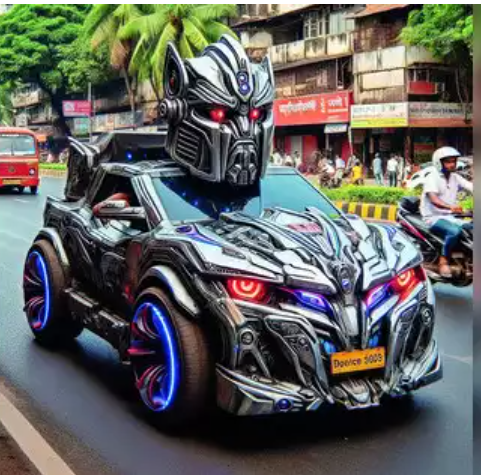India has agreed to reduce import duties on electric vehicles (EVs) for companies like Tesla, clearing the way for the automaker to enter the Indian market. The reduced duty, from 70-100% to 15%, applies to all global companies, not just Tesla, and is tied to a minimum investment of $500 million. While some argue against such concessions, noting that previous entrants faced no such benefits, the move could open the door for Tesla to compete in India’s growing EV market, which is currently dominated by more affordable options.
The way has been cleared for Tesla to enter India. GoI has succumbed to the company’s demand that in return for a big investment here, India should reduce the import duty on EVs from 70-100% to just 15%. Concessions are available to all global companies, not just Tesla. But note – never before has investment in autos in India been linked to concessional imports.
I have long argued against concessions to Tesla and other foreign companies to enter India. None were given to the world’s auto majors for conventional petrol and diesel vehicles. But they came anyway because the Indian market was too big to ignore. From General Motors and Ford to Toyota and Volkswagen, all came in, and some suffered losses for decades because India was too big a market to surrender easily.
Many foreign and Indian companies are already launching EVs in India. So, Tesla was not needed to kick-start a new product. But it is such an iconic company that GoI has given in. The silver lining is that so many conditions have been imposed on the giveaways that the cost will be limited, though high.
First, foreign investors will have to invest at least $500 mn. Second, duty concessions will apply for only five years to 8,000 vehicles a year costing $35,000 or more. Total tax concession will depend on the cost of each imported vehicle. But Reuters estimates it around $800 mn over five years, a huge sum. However, in the absence of a tax cut, far fewer than 8,000 vehicles a year may be imported. So, the cost may be less.
Tesla sells EVs in the US at $40,000-70,000. In China, it has cut prices to combat stiff competition from companies such as BYD – currently the biggest EV producer in the world – Nio, XPeng and Li Auto. Tesla is marketed as a luxury car in the US, Europe and China. But the Chinese market is dominated by cheap EVs by local companies. The cheapest models cost under $10,000.
Tesla has till now not attempted to make a cheap car for the masses. But, reportedly, it’s doing R&D on this. Whether it succeeds remains to be seen. Its outstanding features have been elegance, design and new tech, all essential in the luxury sector. By contrast, BYD produces a full range of autos from cheap to luxury, plus electric buses. This has enabled it to overtake Tesla in volume. But Elon Musk has such a fantastic track record in innovation that none should rule out his springing a surprise in the mass market.
Tata and Mahindra have ambitious EV plans. Tata’s global subsidiary, Jaguar, is going to produce 100% EVs in a few years. In India, Tata has launched Tiago at ₹10 lakh ($12,000), Punch at ₹11 lakh and Nexon at ₹15 lakh. Mahindra XUV400 is available at ₹16 lakh. Tata and Mahindra are not too worried about competition from Tesla, which caters so far to a much higher price band.
If Tesla is going to invest $500 mn in India, it faces a dilemma. If it continues focusing on high-end cars, its massive investment will have to be mostly for export, not the Indian market, which is still modest for high-end cars. If it opts for trying to produce mid-priced autos for the Indian market, it will face fierce competition from companies already here, not just Tata and Mahindra but all the global majors.
In China, Tesla has lost leadership to BYD. Tesla produces only luxury autos. But BYD produces a full range from cheap to luxury cars, apart from electric buses, for which it already has a small plant in India.
Logically, India should be wooing Chinese manufacturers that produce cars far more suited to Indian wallets. However, after the 2020 clashes in Ladakh, GoI has retaliated by blocking Chinese investments not just in security-related areas but others like autos too. Great Wall of China had proposed $1 bn investment for conventional autos, but that was blocked.
BYD also proposed a JV with Megha Engineering with an investment of $1 bn in EVs and batteries. But this was turned down. BYD is a world leader in battery technology, which is of critical importance since batteries constitute the bulk of cost of an EV. Tesla and other foreign companies may be ahead in style and fancy features, but they can’t beat BYD and other Chinese companies on price. In the price-conscious Indian market, that may be conclusive.
MG Motor, a global brand now owned by the Chinese, has done well in India so far. But to secure its future, it’s going to become a minority partner in a JV with Jindal South West. Perhaps this is the route by which India may ultimately get some, if not all, top Chinese EV companies. That would be far more important than getting just Tesla.
This article was originally published by The Economic Times on March 26, 2024.


